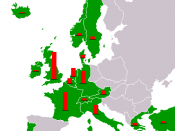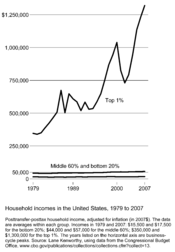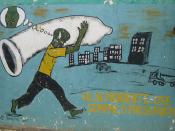JF Sociology Essay- Hilary Term.
Richard Northridge 02908786
Why have International Aid programmes failed to bring about greater equality between the countries of the North and those of the South?
Introduction
Sociologists, Economists and Politicians have always placed countires or regions within a model or framework to allow analysis of the factors which shape their society, economic climate or political environment. The conclusion of the Second World War left the western world in two clearly defined categories, West and East. For almost fifty years this was the main form of division that was used by analysts and the media. However with the ending of the Cold war a new division was to emerge, and it arrived in the form of the politico-economic division "North" and "South". The North was seen as containing the "haves" while the South was viewed as polpulating the "have nots". The terms of this equality was largely based upon the somewhat liminted statistics of income per head, its limitations will be discussed in detail later.
However on examination of this sense of equality it becomes clear that, even though development assistance groups appeared in the early 1960s, there have been no major in-roads into the inequality that has existed. In the 1960s the impoverished "have nots" of the South constituted more than two thirds of the world's poverty stricken. Crucially this worrying statistic has remained almost unchanged fifty years after initial attempts were made to bridge the divide through International Aid. In light of the hundreds of millions of dollars that has been thrown at the problem of global inequality a most pressing question must be, why is International Aid failing to make a real difference in terms of the inequality divide?
1) Defining the Parameters of analysis
To answer this question one must first define...


